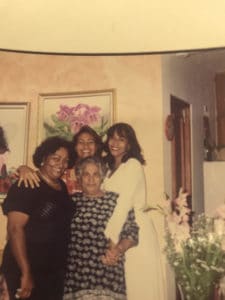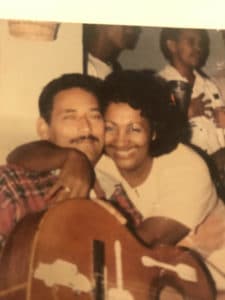News & Media
Maria – Navigating My Identity
My given name is Maria; I am from a part of the Caribbean called the Dominican Republic. During my childhood, people labeled me a ‘Morena’. Morena is a colloquialism throughout Latin American and the Caribbean that denotes skin color with a literal translation to brown or brunette. Historically, this term designates a placement in a recognized racial classification established by Spanish colonization. Europeans encouraged mixing races in Latin America within the African and Indigenous spheres creating Moreno groups of Criollos, Mulatos, and Mestizos.
In general, Latin American and Caribbean society have used Moreno as a linguistic term, characterizing ‘whiting’ an individual who is deemed ‘dark’. Simply, Morena helps create ambiguity on the sliding scale of colorism and helps escape the stigmatization of being labeled ‘Black’; a catch 22. Additionally, the term offers another degree of colorism complexity to be reduced to Claro and Oscuro (Clear/Dark Moreno/a). Used to insinuate social hierarchy, these terms hold a deep significance within Caribbean & Latin communities.
In my case, I did not care much about my racial designation until I moved to Canada where I was first labeled Black. In that moment, I understood that of course, I am a black woman but I was not confronted with the reality of being the other until I was placed within a society that did not hold space for my likeness. Being raised within the mulato community, this new label revealed new conversations within others and myself as to what it means to be Latina, black, and mulata in the western world.
Historically, women within my country do not feel comfortable identifying themselves with their black heritage. Focusing on the physical characteristics of blackness, society has used the beauty standards of our settlers to deem what is beautiful in contrast to our roots. The pressure pushes women in my country to reject their blackness; hours straightening their beautiful curly hair to achieve a white-like appearance. My experiences do not differ; during my childhood, a close friend became badly burned because her mother straightened her hair using a hot comb and damaged her scalp. Similarly, my sister had very textured hair that was difficult to manage for our mother. When styling ‘bantu knots’, my sister would receive a much more intensive treatment in comparison to others. By the age of seven, my mother began taking us to salons for relaxing treatments, chemically altering our hair for a permanently straight look. My sister knew that her natural hair was less desired and often voiced her anguish when being burned by the chemicals made to make us ‘beautiful’.
In conclusion, I want to Share some photos of my father and mother and of my grandma, my mother, my sister and me. The power women of my family.
Maria Corniel

